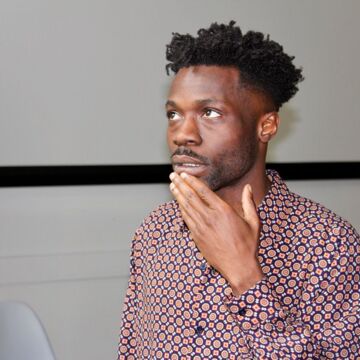

Eshovo Momoh
Lecturer
Contact
Bio
Eshovo Momoh is a multimedia artist from Prince George's County, Maryland. He spent 2006 - 2014 performing solo compositions and collaborations, as well as with his band and comedic group in DC and other cities in the Northeast. He continued performing in Chicago after relocating in 2014. He is the co-founder of the sound art agency Et Cetera Labs. He has released several singles and EPs on digital; as well as three albums: “In Neutral” (2012), #000000 (2015), “Listening or of Empathy and Echo” (2018) which included an artist book.
Although consumed by music, he is also interested in noise, spatial-sound design, and loud music in small speakers.
Education: BFA 2018, The School of The Art Institute of Chicago.
Performances/Exhibitions: (Chicago) Blanc Gallery, The Empty Bottle, The Print Lounge, Elastic Arts, The VCR, Chicago Filmmakers, Comfort Station. (DC) The Fridge, The Velvet Lounge, Ian’s Basement, Tree House Lounge, In It Together Festival, George Washington University, Skidmore College, University of Maryland Awards: Jury Prize, Chicago Filmmakers